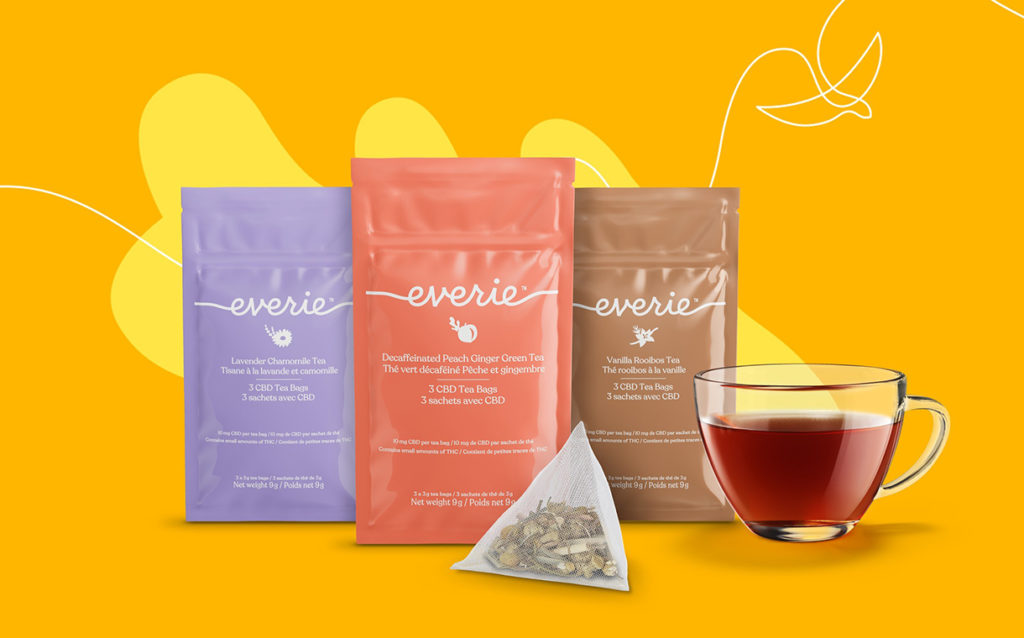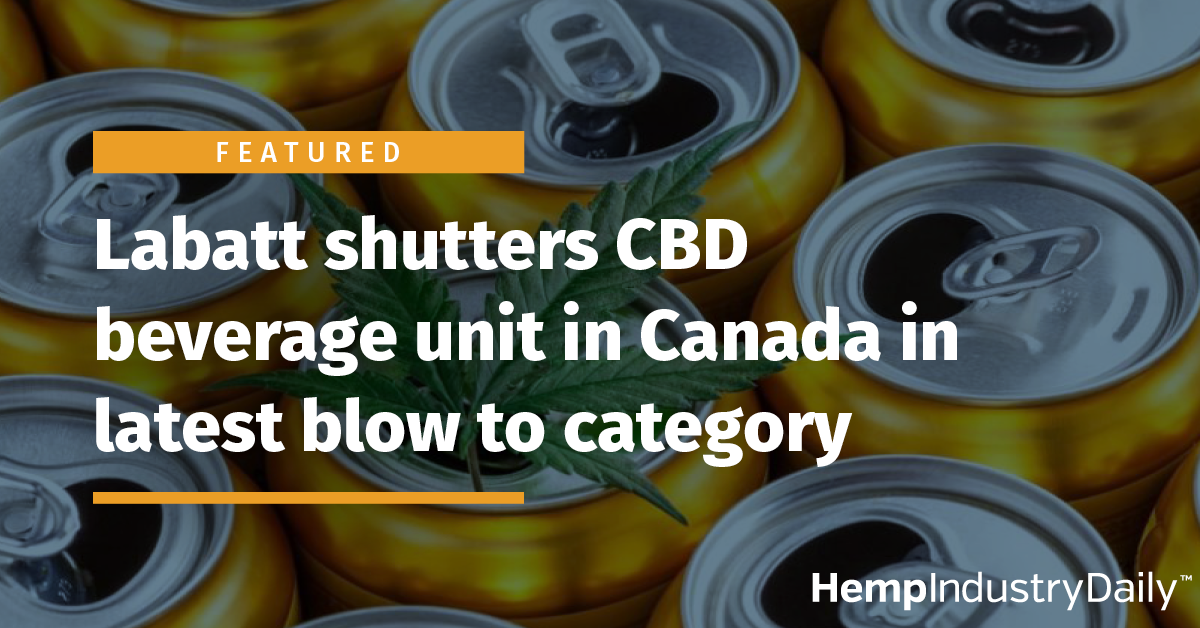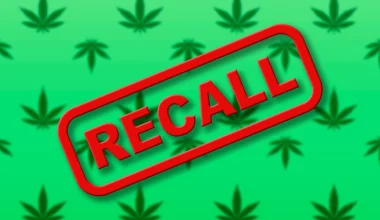
Labatt Breweries of Canada, one of the country’s top beer makers, pulled the plug on its nonalcoholic CBD beverage unit in Canada, Fluent Beverages, signaling continued pressure on Canada’s fledgling infused-drinks category.
Fluent had been born from a partnership between Budweiser maker AB InBev, the world’s largest brewer, and cannabis producer Tilray.
But that relationship ended three months ago, leaving the cannabis beverage maker solely in the hands of Labatt. Labatt is a subsidiary of AB InBev.
At the time, Labatt said it intended to operate the unit as a wholly owned subsidiary and its day-to-day operations were focused on commercializing CBD-infused beverages.
Reached for comment by MJBizDaily, Labatt would not specify why it was closing Fluent at this time or disclose the number of affected employees.
“Fluent has decided to stop operations in Canada,” Jorn Socquet, CEO of Fluent Beverages, said in a statement provided by Labatt.
“We want to thank our employees, partners, and customers for their support over the past three years in helping us build one of the top CBD beverage portfolios in Canada.”
Labatt will continue to keep an eye on the cannabis sector, a spokesperson said.
“The learnings from Fluent will be used to evaluate future opportunities within the category, and we will continue to monitor the cannabis sector closely,” said Tamar Nersesian, Labatt’s communications director.
“When Labatt announced the creation of Fluent in 2018, Fluent set out to research nonalcohol cannabis beverages in Canada.
“Over the past three years through Fluent, we have gained deep category insights into the cannabis sector and consumer preferences, expanded our research and development capabilities and worked with some exceptional talent.”
Possible changes
In Canada, recreational beverages containing cannabinoids, even if it’s just CBD, can be sold only via licensed establishments. That means retailers such as Walmart are prohibited from selling CBD drinks in their stores.
Another limiting factor is the country’s current federal regulations effectively limiting public possession and, therefore, single purchases, to 2.1 liters (71 ounces) of cannabis-infused beverages – which is about five standard-sized cans.
But the government has proposed changing the rules informing that limit.
If adopted as proposed, the public possession limit for beverages would effectively increase to 17.1 liters – or 48 standard-sized beverage cans.
Still, it’s unclear if that would be enough to spur demand for the niche products.
Health Canada said there’s no evidence the planned changes would lead to beverages becoming more popular among consumers, but the Health Department didn’t rule it out.
“This change may result in changes in consumer preferences, leading to cannabis beverages becoming a more popular cannabis product; however, there is no evidence to support that this change to equivalency and the corresponding impact on consumer preferences would occur,” the agency noted.
Underwhelming sales
Infused-beverage sales – including both THC and CBD – amounted to slightly less than 40 million Canadian dollars ($31 million) through the first three quarters of 2021, according to the latest figures from Statistics Canada.
That’s significantly short of the half-a-billion-dollar annual market predicted by accounting firm Deloitte.
Some of the biggest cannabis beverage makers in Canada have reported underwhelming sales.
Truss Beverage Co., a business venture between Molson Coors Canada and Hexo Corp., saw net beverage sales increase only 6% in the second quarter of fiscal 2022 over the same period in the previous year.
Canopy Growth Corp. hasn’t fared much better.
For the three months ended Dec. 31, 2021, the Smiths Falls-based company’s sales of beverages, edibles, topicals and vapes was CA$5.8 million.
That represents a 40% drop from the same period one year earlier.
Matt Lamers can be reached at matt.lamers@mjbizdaily.com.
Medical Disclaimer:
The information provided in these blog posts is intended for general informational and educational purposes only. It is not a substitute for professional medical advice, diagnosis, or treatment. Always seek the advice of your physician or other qualified healthcare provider with any questions you may have regarding a medical condition. The use of any information provided in these blog posts is solely at your own risk. The authors and the website do not recommend or endorse any specific products, treatments, or procedures mentioned. Reliance on any information in these blog posts is solely at your own discretion.






